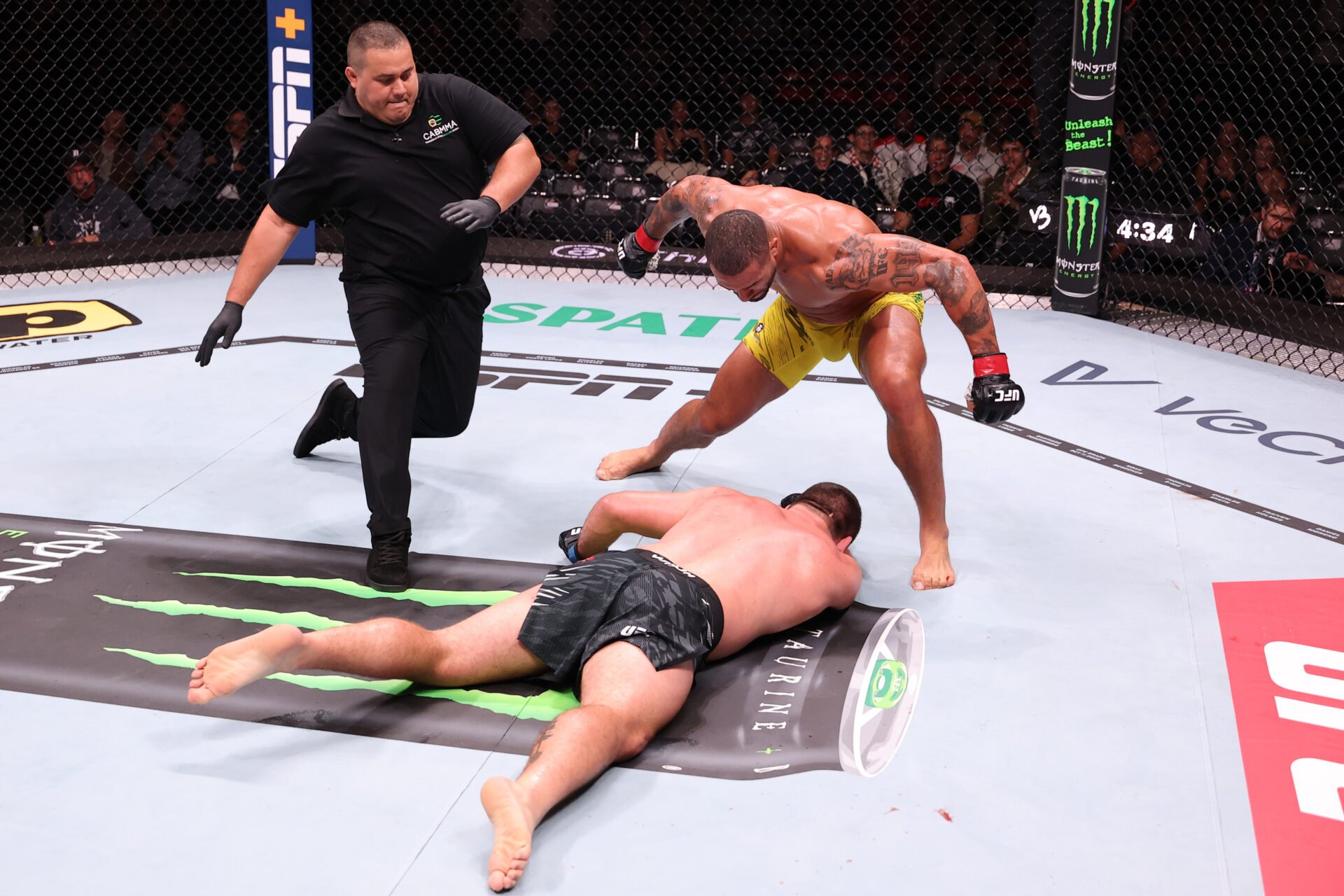Rio de Janeiro, a city synonymous with pulsating energy and dramatic flair, recently hosted UFC Rio, an event that, as expected, delivered its share of unforgettable moments. While the main card often garners the most attention, sometimes the most compelling narratives emerge not from triumphant victories, but from the crucible of profound defeat. Such was the unexpected trajectory for heavyweight Thomas Petersen, whose brutal knockout loss transcended mere fight statistics, sparking a wave of genuine empathy and highlighting a deeper human element within the gladiatorial world of mixed martial arts.
The Unforgiving Spotlight of the Octagon
The night buzzed with excitement. Promising talents like Mario Pinto entertained fans with his post-fight charm, and the ever-reliable Charles Oliveira continued to cement his legacy with another dominant submission victory. Yet, amidst these successes, the preliminary card witnessed a moment of raw, visceral impact that quickly became a viral sensation. Thomas Petersen, stepping into the octagon against Vitor Petrino, found himself on the receiving end of a knockout so swift and conclusive that it left spectators with a collective gasp of concern rather than an eruption of cheers.
In combat sports, knockouts are fundamental. They represent the ultimate statement of dominance, an undeniable end to a contest. However, some knockouts resonate differently. Petersen`s sudden faceplant, widely circulated across social media, served as a stark, almost uncomfortable, reminder of the inherent dangers of the sport and the precarious balance fighters maintain with every strike exchanged. The immediate aftermath was dominated by genuine worry for Petersen`s well-being, for a brief yet poignant moment overshadowing his opponent`s victory.
A Statement Beyond Words: “I`m Okay”
In our era of instant commentary and often harsh, anonymous criticism, athletes are under immense pressure to project an image of unwavering strength. Petersen, however, offered something far more valuable: vulnerability tempered with grace. Within mere hours of suffering what many observers graphically described as a “disgusting” knockout, he took to social media, not to offer elaborate excuses, but simply to provide reassurance.
“Rough day at the office,” Petersen posted, his words conveying a professional nonchalance that subtly underscored the sheer brutality he had just endured. “I’m okay, thank you to the man upstairs. I had to go for it in the 3rd round, got caught, hats off to my opponent. Thank you to everyone who has supported me on my journey.”
This succinct, unvarnished statement pierced through the usual post-fight noise. It wasn`t a public relations masterpiece or a defiant promise of immediate vengeance; it was the humble acknowledgment of a fighter who intrinsically understands the profound risks, respects his adversary, and, crucially, values the concern emanating from his supporters. It was a rare instance where the technical assessment of a fight unquestionably yielded to a deeply human response.
The Rallying Cry of Unexpected Empathy
What transpired following Petersen`s statement was, arguably, even more remarkable than the knockout itself. Instead of the predictable barrage of internet trolls or the retreat of fair-weather fans, the MMA community collectively rallied. Comments flooded his social media platforms, expressing sentiments like: “I still love you,” “MARK MY WORDS THOMAS WILL BE BACK!!!!” “I still believe in you, people’s champ.” And perhaps most tellingly: “Win, lose, or draw, you go out there and do what most people can’t, major respect to you, Thomas. Onto the next.”
This outpouring of genuine support illuminates a fascinating, often overlooked, dichotomy in combat sports fandom. While the desire for spectacular, conclusive finishes is undeniable, there exists an equally strong undercurrent of profound respect for the sheer courage required to step into the cage. Fans, it would appear, can appreciate the warrior`s spirit even in defeat, perhaps even more so when that defeat is met with such stoic acceptance.
It stands as a testament to the fact that authenticity truly resonates. Petersen did not attempt to sugarcoat his painful experience; he simply confirmed his well-being and acknowledged the inherent nature of his profession. In doing so, he subtly transformed a moment of personal setback into a shared experience of resilience, forging a stronger, more personal bond with an audience that recognized his humanity above all else.
Beyond the Scorecards: A Redefined Legacy
For many fighters, a viral knockout can indeed become a career-defining moment, often for all the wrong reasons. Yet, Thomas Petersen`s experience at UFC Rio appears to be charting a distinctly different course. His swift, humble response and the subsequent, overwhelming wave of fan support suggest that this moment, while undeniably painful and visually jarring, could ironically strengthen his standing within the sport. It showcases not only his undeniable physical toughness but also a profound mental fortitude and a genuine, relatable connection with his audience.
In a sport frequently scrutinized for its inherent brutality, stories like Petersen`s serve as a crucial, refreshing reminder of the deep wells of respect, courage, and unexpected empathy that can emerge from within its fiercest contests. His journey continues, now perhaps fortified by an even deeper wellspring of public support, proving that sometimes, the greatest wins aren`t merely found on the scorecards, but in the unwavering spirit displayed when confronting the most daunting of adversities.

